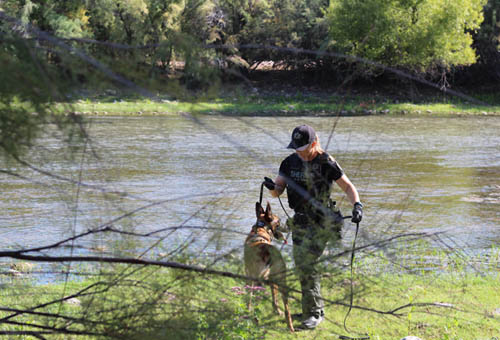


Examine the importance of multidisciplinary team (MDT) case coordination and evidence corroboration in the investigation of child abuse cases. Various members of the Multidisciplinary Team, such as law enforcement, child protective services, and forensic interviewers may gather different or differing information. Learn how to evaluate evidentiary findings through crime scene images, interviews and case studies. Understand multidisciplinary team members' roles and responsibilities for protecting child victims and prosecuting offenders. Focus on offenders’ use of technology, including the use of child sexual abuse material (CSAM) in grooming and manipulation. Discuss a variety of technology that can be used by investigators.

Avoid potential conflict both professionally and personally by learning to organize your thinking and respond calmly. Consider the approaches you can take to prevent and respond to verbal conflict. This course will explore the communication process, conflict prevention, to help you understand why conflicts occur. Instruction will also cover certain circumstances in which verbal de-escalation techniques may not be appropriate, and provide techniques to resolve such conflicts. Join us to learn how de-escalation techniques and communication skills can potentially defuse tense situations and lead to more successful outcomes. This training does not cover physical intervention techniques.

SORN programs typically experience significant challenges related to staff turnover, inadequate resources, court challenges, and lack of skill development opportunities. Whether you are new to this area of work or are experienced, join us for an intensive two-day skill development training designed specifically for SORN personnel. During the training, we will cover an introduction and overview of SORN laws, registration of offenders, community notification to the public, and enforcement and compliance issues. Advanced skill development such as registrant monitoring and compliance, and community notification meetings will also be covered. Participate in this interactive training which includes educational information, ready-to-use resources, case studies, interactive discussion, and opportunities to apply learned skills.

Seconds count when a child is missing. Gain the critical skills needed to construct and manage effective search and canvass operations to recover the child. Recognize crucial cell phone and technology-related evidence which can help locate the child and track the abductor. Explore relevant legal issues associated with criminal cases against those who abduct and harm children. Participate in hands-on exercises designed to test your knowledge and application of the material and prepare you for your next missing child case.

Test your community’s response in conducting an initial investigation, search and canvass activities for a missing or abducted child scenario occurring on tribal lands. Employ strategies and responses in mitigating and resolving the emergency. Participate in a multi-disciplinary, multi-jurisdictional tabletop exercise, to build cohesiveness with tribal, state, local and federal partners when responding to an emergency.

Gather up-to-date information for the investigation and prosecution of all types of child abuse cases utilizing a multidisciplinary team (MDT) approach. Learn about medical evidence, interviewing child victims/witnesses and adult suspects/witnesses, along with legal issues involved in the investigation and prosecution of child physical and sexual abuse cases. Discuss trends in offenders’ use of technology, the use of child sexual abuse material (CSAM), and sextortion. Learn law enforcement investigative techniques that capitalize on new technology.

Learn how to objectively investigate child death cases, particularly when the cause and manner of death is unexplained. Examine investigative mindset from initial call-out to case resolution and learn how to gain an understanding of what happens with a victim-centered approach, exploring the emotional trauma of the non-offending caregiver. Discuss possible causes of death and best practices and tips including various investigative steps for evidence collection, witness and suspect interviews. This basic course offers law enforcement, CPS, and other child death investigators up-to-date practices for the investigation of child deaths.

Join us for an intensive training focused on understanding and building relationships between the forensic pathologist, homicide investigator, and prosecutor in successfully investigating and prosecuting child homicide cases. Learn autopsy protocols, forensic essentials, and the criticality of determining the cause and manner of death. Understand the unique aspects of investigating a child homicide including interviewing and interrogation, suspect pool development and the role and importance of the prosecutor in gaining appropriate convictions.

Explore investigative strategies that address the relationship between child sexual abuse and child sexual abuse materials (child pornography) to supplement an investigation and corroborate victim statements. Gather new tools and resources for the most comprehensive case outcomes.

Courthouses serve as the center of many government, legal, and community activities. They can also be vulnerable to threats of violence for all who use them. Join us to learn effective strategies and best practices to enhance a collaborative courthouse security philosophy. Gather tools and resources from current state and federal court services experts related to security planning, jury and witness safety considerations, and threat assessment and management. Presenters include experts in the areas law enforcement, state and federal attorneys, judges and other court services professionals.
